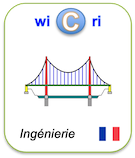Foregrounds for 21‐cm observations of neutral gas at high redshift
Identifieur interne : 000383 ( Main/Exploration ); précédent : 000382; suivant : 000384Foregrounds for 21‐cm observations of neutral gas at high redshift
Auteurs : S. Peng Oh ; Katherine J. Mack [États-Unis]Source :
- Monthly Notices of the Royal Astronomical Society [ 0035-8711 ] ; 2003-12.
English descriptors
Abstract
We investigate a number of potential foregrounds for an ambitious goal of future radio telescopes such as the Square Kilometer Array (SKA) and the Low Frequency Array (LOFAR): spatial tomography of neutral gas at high redshift in 21‐cm emission. While the expected temperature fluctuations due to unresolved radio point sources is highly uncertain, we point out that free–free emission from the ionizing haloes that reionized the Universe should define a minimal bound. This emission is likely to swamp the expected brightness temperature fluctuations, making proposed detections of the angular patchwork of 21‐cm emission across the sky unlikely to be viable. Hα observations with JWST could place an upper bound on the contribution of high‐redshift sources to the free–free background. An alternative approach is to discern the topology of reionization from spectral features due to 21‐cm emission along a pencil‐beam slice. This requires tight control of the frequency‐dependence of the beam in order to prevent foreground sources from contributing excessive variance. We also investigate potential contamination by galactic and extragalactic radio recombination lines (RRLs). These are unlikely to be show‐stoppers, although little is known about the distribution of RRLs away from the Galactic plane. The mini‐halo emission signal is always less than that of the intergalactic medium (IGM), making mini‐haloes unlikely to be detectable. If they are seen, it will be only in the very earliest stages of structure formation at high redshift, when the spin temperature of the IGM has not yet decoupled from the cosmic microwave background.
Url:
DOI: 10.1111/j.1365-2966.2003.07133.x
Affiliations:
Links toward previous steps (curation, corpus...)
Le document en format XML
<record><TEI wicri:istexFullTextTei="biblStruct"><teiHeader><fileDesc><titleStmt><title xml:lang="en">Foregrounds for 21‐cm observations of neutral gas at high redshift</title><author><name sortKey="Peng Oh, S" sort="Peng Oh, S" uniqKey="Peng Oh S" first="S." last="Peng Oh">S. Peng Oh</name></author><author><name sortKey="Mack, Katherine J" sort="Mack, Katherine J" uniqKey="Mack K" first="Katherine J." last="Mack">Katherine J. Mack</name></author></titleStmt><publicationStmt><idno type="wicri:source">ISTEX</idno><idno type="RBID">ISTEX:E956247CB95D1F1DE3735BADACA8998DFFD6E24A</idno><date when="2003" year="2003">2003</date><idno type="doi">10.1111/j.1365-2966.2003.07133.x</idno><idno type="url">https://api.istex.fr/document/E956247CB95D1F1DE3735BADACA8998DFFD6E24A/fulltext/pdf</idno><idno type="wicri:Area/Main/Corpus">000209</idno><idno type="wicri:Area/Main/Curation">000209</idno><idno type="wicri:Area/Main/Exploration">000383</idno><idno type="wicri:explorRef" wicri:stream="Main" wicri:step="Exploration">000383</idno></publicationStmt><sourceDesc><biblStruct><analytic><title level="a" type="main" xml:lang="en">Foregrounds for 21‐cm observations of neutral gas at high redshift</title><author><name sortKey="Peng Oh, S" sort="Peng Oh, S" uniqKey="Peng Oh S" first="S." last="Peng Oh">S. Peng Oh</name></author><author><name sortKey="Mack, Katherine J" sort="Mack, Katherine J" uniqKey="Mack K" first="Katherine J." last="Mack">Katherine J. Mack</name><affiliation wicri:level="1"><country xml:lang="fr">États-Unis</country><wicri:regionArea>Theoretical Astrophysics, Mail Code 130‐33, Caltech, Pasadena, CA 91125</wicri:regionArea><wicri:noRegion>CA 91125</wicri:noRegion></affiliation></author></analytic><monogr></monogr><series><title level="j">Monthly Notices of the Royal Astronomical Society</title><idno type="ISSN">0035-8711</idno><idno type="eISSN">1365-2966</idno><imprint><publisher>Blackwell Science Ltd</publisher><pubPlace>23 Ainslie Place , Edinburgh EH3 6AJ , UK . Telephone (0131) 226 7232 Fax (0131) 226 3803</pubPlace><date type="published" when="2003-12">2003-12</date><biblScope unit="volume">346</biblScope><biblScope unit="issue">3</biblScope><biblScope unit="page" from="871">871</biblScope><biblScope unit="page" to="877">877</biblScope></imprint><idno type="ISSN">0035-8711</idno></series><idno type="istex">E956247CB95D1F1DE3735BADACA8998DFFD6E24A</idno><idno type="DOI">10.1111/j.1365-2966.2003.07133.x</idno><idno type="ArticleID">MNR7133</idno></biblStruct></sourceDesc><seriesStmt><idno type="ISSN">0035-8711</idno></seriesStmt></fileDesc><profileDesc><textClass><keywords scheme="KwdEn" xml:lang="en"><term>cosmology: theory</term><term>galaxies: formation</term><term>large‐scale structure of Universe</term></keywords></textClass><langUsage><language ident="en">en</language></langUsage></profileDesc></teiHeader><front><div type="abstract" xml:lang="en">We investigate a number of potential foregrounds for an ambitious goal of future radio telescopes such as the Square Kilometer Array (SKA) and the Low Frequency Array (LOFAR): spatial tomography of neutral gas at high redshift in 21‐cm emission. While the expected temperature fluctuations due to unresolved radio point sources is highly uncertain, we point out that free–free emission from the ionizing haloes that reionized the Universe should define a minimal bound. This emission is likely to swamp the expected brightness temperature fluctuations, making proposed detections of the angular patchwork of 21‐cm emission across the sky unlikely to be viable. Hα observations with JWST could place an upper bound on the contribution of high‐redshift sources to the free–free background. An alternative approach is to discern the topology of reionization from spectral features due to 21‐cm emission along a pencil‐beam slice. This requires tight control of the frequency‐dependence of the beam in order to prevent foreground sources from contributing excessive variance. We also investigate potential contamination by galactic and extragalactic radio recombination lines (RRLs). These are unlikely to be show‐stoppers, although little is known about the distribution of RRLs away from the Galactic plane. The mini‐halo emission signal is always less than that of the intergalactic medium (IGM), making mini‐haloes unlikely to be detectable. If they are seen, it will be only in the very earliest stages of structure formation at high redshift, when the spin temperature of the IGM has not yet decoupled from the cosmic microwave background.</div></front></TEI><affiliations><list><country><li>États-Unis</li></country></list><tree><noCountry><name sortKey="Peng Oh, S" sort="Peng Oh, S" uniqKey="Peng Oh S" first="S." last="Peng Oh">S. Peng Oh</name></noCountry><country name="États-Unis"><noRegion><name sortKey="Mack, Katherine J" sort="Mack, Katherine J" uniqKey="Mack K" first="Katherine J." last="Mack">Katherine J. Mack</name></noRegion></country></tree></affiliations></record>Pour manipuler ce document sous Unix (Dilib)
EXPLOR_STEP=$WICRI_ROOT/Wicri/Amerique/explor/CaltechV1/Data/Main/Exploration
HfdSelect -h $EXPLOR_STEP/biblio.hfd -nk 000383 | SxmlIndent | more
Ou
HfdSelect -h $EXPLOR_AREA/Data/Main/Exploration/biblio.hfd -nk 000383 | SxmlIndent | more
Pour mettre un lien sur cette page dans le réseau Wicri
{{Explor lien
|wiki= Wicri/Amerique
|area= CaltechV1
|flux= Main
|étape= Exploration
|type= RBID
|clé= ISTEX:E956247CB95D1F1DE3735BADACA8998DFFD6E24A
|texte= Foregrounds for 21‐cm observations of neutral gas at high redshift
}}
|
| This area was generated with Dilib version V0.6.32. | |


